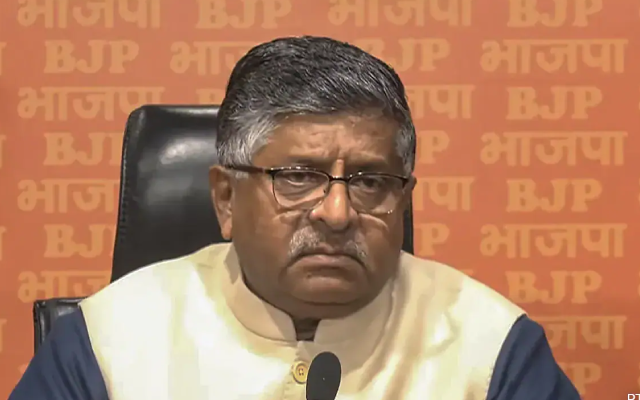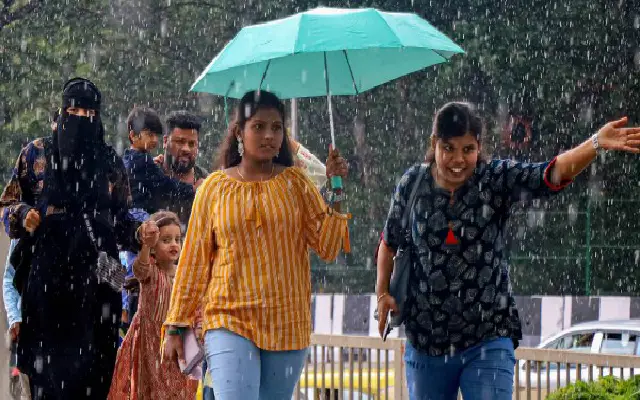 On 25/2/2021 IT rules were notified for the operation of Information Technology Act, 2000 (Act 21 of 2000) duly amended in Nov 2020, these rules now cover almost every part of the virtual digital world that has become a part of us with the high level of internet access in India today.
On 25/2/2021 IT rules were notified for the operation of Information Technology Act, 2000 (Act 21 of 2000) duly amended in Nov 2020, these rules now cover almost every part of the virtual digital world that has become a part of us with the high level of internet access in India today.
As per the latest estimates, there are 53 Crore WhatsApp users in India, 44.8 Crore Youtube users, 42 Cr Facebook users, 21 Crore Instagram users (and 1.75 Cr Twitter users). The number of Indian daily active users of each of the Top 4 social media platforms exceeds the total population of every country in the world excluding only China, India, the United States, and Indonesia. The importance of this is that the impact of any provocative misinformation could be tragic on a scale that no one can handle.
India has had a voluntary pre-censorship regime in place for print media over several decades, and this regime with all its shortcomings (which, admittedly, are plenty) has done its job most satisfactorily. The key factors here are that all the players remain within territorial limits, effective traceability exists for all printed content, and the option remains available for intervention in the event of any specific situation threatening to go out of hand. Debates about relevant clauses not applied, or clauses selectively applied with excessive vigour have been continuous, yet this law has earned a respect for itself by its effectiveness.
The onset of digital media has further changed all this and it is now possible for anybody anywhere to put up a statement on the net that can reach out to millions in no time without any part of the utterance being even close to the truth.
The mild and half-hearted whining by Donald J Trump following his election defeat turned the beacon of the free world into a spectacle to behold, and that too, when he was very random and disorganized. It failed only because it was done by a single individual in despair, and not by a professional team of trans-national state actors using overseas resources to deliberately spread their venom, being quite cosy due to the sad truth that no one can get back to them. The consequences of a disturbance plotted by shadow-players hiding overseas and deliberately planning a hit or more over weeks or months can be well imagined.
Social media owners, meanwhile, have been very effective global puppeteers, placating users and authorities alike, while never moving on any issue that does not impact their revenue.
In the words of Bala Murali Krishna, writing in Moneycontrol.com, the New IT Rules may well become a template for adoption by other countries that are facing the consequences of not having strong and robust rules in place.
In this new environment, intermediary includes news, blogs where visitors may upvote, downvote or comment, without really placing any substantive content on the site. Actual uploading of content would be done by the intermediary only
The rules call upon this intermediary to:
Display on its main screen (Home page) a clear declaration of non-acceptance of any content that is illegal, immoral or unsafe.
The provider of the platform (the “intermediary”) will display this notice and take the consent of any user who applies for use of the platform.
A ‘user’ means any person who accesses or avails any computer resource of an intermediary or a publisher
Note: Desk staff uploading content are the ‘users’ or responsible persons here
Readers who have no means of uploading content are not exposed to any risk; any reader may, however, raise a grievance for any discrepancy observed.
Each user will be 100% responsible to ensure that the content does not break the law or incite anyone else to break the law.
The new rules specify that the user will take full responsibility for material uploaded and will not upload content on anyone else’s behalf.
A record will be maintained of all users of the platform, and this record will be retained for upto 18 months after any user exits or is terminated from the platform (more only if any action is in the process against the user).
The Intermediary will be responsible to identify a specific person as a grievance officer within the country who will ensure that all steps required are taken whenever discrepancies are observed by readers/ viewers or when reported by Police, or Government IT departments and who will have the authority and freedom to carry out these tasks as and when required and maintain a record of all such actions taken. These steps could include withdrawing user rights and taking down discrepant content.
This is not as bad as it looks, having an identified customer care officer has been the norm in India for food, medicines, and machinery manufacturers and suppliers for several years now. The assignment of a grievance officer will be a big face-saver should anything unexpected still happen.
A key takeaway of having a grievance officer on board is that day-to-day interactions will reduce the chance of an inadvertent mistake,
In case of later detection of objectionable content on the site, strict timelines are laid down to ensure immediate compliance to take-down orders from a competent authority,
Where upon receiving actual knowledge a grievance received by any user, any information is removed or access to which is disabled, the intermediary shall preserve such information and associated records for one hundred and eighty days for investigation purposes, or more if any legal proceedings are in process;
More elaborate controls have been demanded from significant social media intermediaries (having 5L or more users and/or 50L or more followers) to help ensure that a system is in place to both prevent and follow-through on any discrepancy upto any extent should the need arise, – with 5L users and 50L followers being the cutoff level for this classification, dedicated non-invasive supervision will do it a lot of good.
One discomfort that the new law does admittedly cause is the identification of First Originator. In the case of an overseas originator, the first Indian user becomes the FO and will thus be responsible for consequences arising out of the onward transmission of the content. Once this is in place, the ability of hidden/ overseas elements using stealth to wreak their havoc would be effectively neutralised.
A significant social media intermediary providing services primarily like messaging will be expected to enable the identification of the First Originator of information on its computer resource
As stated in the law this will apply ONLY where related to an offence or incitement to commit an offence: against the Union of India, of rape, or child sexual abuse, and the offence is punishable with imprisonment for a term of not less than five years, and such order shall not be passed in cases where less intrusive means are effective in identifying the originator. Hopefully, the application of this part of the law will be an exception and not the rule.
The rules clearly state that as this addresses identification of the user, no other information of the user need be disclosed, the content of the message or other personal data of the user is NOT to be disclosed.
Why so? It may be pertinent to observe at this point that the actual content of a message is mostly irrelevant when the message in question is placed immediately before or immediately after the commission of any crime, (who, where, when, does matter, but not what), the metadata is the important part here, i.e. person(s) called/messaged by a user, the actual message sent will mostly be a smokescreen (replica of the day’s major news headline or an opening sentence of a hit song) only to cue the receiver that the planned offence is about to be executed/has just been executed.
One can, however, expect WhatsApp, for example, to refuse, or to create an obstruction for such disclosure, not so much out if its oft-stated concern for individual freedom, but more because if they yield to this demand in India, soon other countries may make similar demands.
The new law extends the controls to all digital content that have so far been applicable on print media in a manner that ensures user traceability for all content being uploaded, and digital evidence has been allowed for prosecution of offences where it was not specifically mentioned as acceptable up to now.
The situation for different intermediaries can be summarised as below:
Blog writers who place their work on specific websites: Will use only that content that is prepared by them, each writer will be 100% responsible to ensure that his content does not break the law or incite anyone else to break the law
News websites
News Websites and Blogger platforms will do good to identify one responsible person as a grievance officer to receive complaints from readers, respond to these complaints and takedown orders from a competent authority, a person normally resident in India
‘Online curated content’ means any curated catalogue of audio-visual information, and includes films, television programmes, serials, podcasts and other such information movie platforms may face a temporary challenge because classifying movies as U,U/A, and A is noticeably different for theatre viewing and for home viewing.
Messaging platforms where users upload, forward and download content endlessly, is where the controls can have a real impact – the pleading of Twitter was that it could not interfere with 1000+ suspect accounts as the freedom of expression of individual users was very dear to it. This concern, however, turned into overdrive as it went full steam ahead to red-flag, stop and then block from future use, all of Donald J Trump’s accounts and terminate his freedom of expression, but only when it became clear that he had lost and would soon be out of the gate.
As I have described in Who’ll Koo for Twitter now?, the recent use of Twitter by an overseas player for pushing a “toolkit” may well open up Pandora’s box for nations that have been facing a plethora of “Insurrections without borders”. Whether it is the anti-military riots in Myanmar, the Navalny protests in Russia or the anti-China protests in Taiwan, all share the common feature of extreme consistency in action despite a rudderless front. Without any visible leadership, these ‘spontaneous uprisings’ are repeatedly hitting hard and precise as never before. It is very instructive indeed, that these insurrections have displayed a striking tendency to occur only in those countries where western nations would never dare to put any ‘Boots on the Ground’.
The stoking of sentiment by overseas elements and the ready (even if ‘casual’ or ‘unintentional’) support from anyone within, is a situation that needed to be fixed.
For any scheming overseas group to succeed, being ‘willing’ and ‘ready’ to strike is not enough, the participation by any Indian in any manner, however innocuous, makes them ‘able’, thus clearing the way for a disaster. This casualness is what ID-based registration at the ‘point-of-entry of any website, followed by a specific sign-in at every use will effectively and discretely neutralize.
While the law itself is long overdue and is at the same time breaking new and untested ground, there are a few concerns that need to be fixed
Stated and specific criteria for takedown would go a long way in helping users avoiding any mistakes when deciding between what is acceptable and what is cognizable, the factors as listed in the Act are too wide in scope, allowing everything or prohibiting everything depending on a reader’s point of view
More prominent in the Act than anything else is the absence of a redressal mechanism: While the scope for many kinds of user wrongdoing have been effectively plugged, judicial oversight of executive action and setting up of a redressal mechanism against potential abuse will certainly help this Act find its paces.
And after all this, the final review is left to an Inter-Departmental Committee, consisting of bureaucrats from different departments, leaving no opportunity for review by an independent judicial member, or an elected lawmaker.
This IT law as it is today may not be perfect and more time may have to pass before loose ends are identified and tied up, but it is indeed a big step forward. It hopefully marks an entry of the rule of law in the digital world, a world that has been operating not by any rule of law, but only by the laws of engagement, where might is right, where only brutality rules, a situation that is appropriate only for a battlefield and not a civilized population sustaining its daily life with only its hard work and its perseverance. Establishing a legal framework for protecting the interests of users and not only the enablers will help the internet see better days.


















